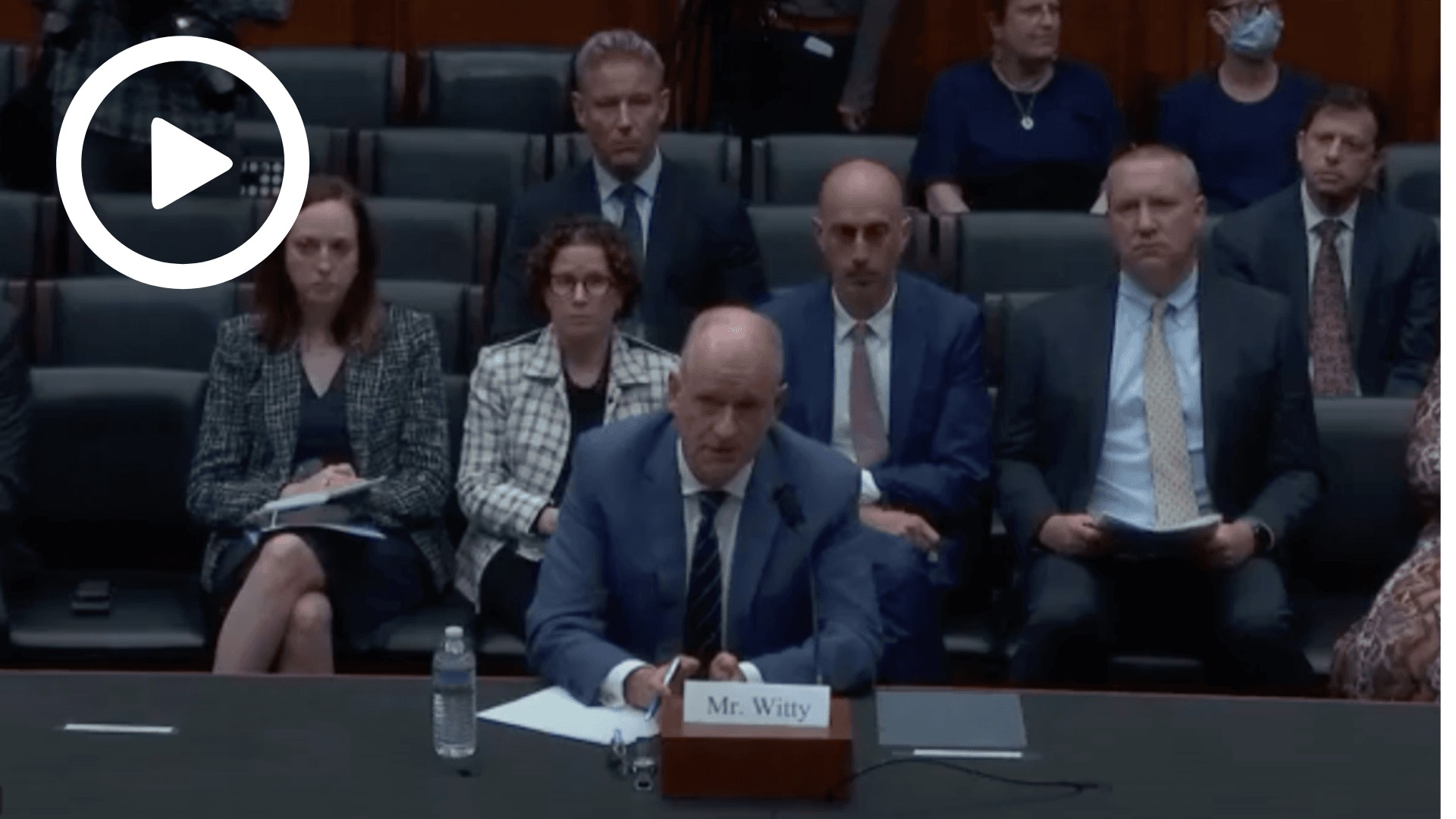Change Healthcare is a key player in the healthcare industry, but What Is Change Healthcare really? This article from WHAT.EDU.VN explores the definition, impact, and future of this company after a significant cyberattack. Dive in to understand the data breach implications, healthcare cybersecurity, and potential solutions. Also, discover where to find trustworthy answers to all your questions about healthcare and more.
1. What Is Change Healthcare and Why Is It Important?
Change Healthcare is one of the largest healthcare technology companies in the United States. It provides a wide array of services that streamline administrative, financial, and clinical processes for healthcare providers and payers. Essentially, it acts as a critical intermediary, facilitating the exchange of information and payments within the complex healthcare ecosystem.
- Definition: Change Healthcare operates as a clearinghouse, processing billions of healthcare claims annually. This involves verifying patient eligibility, submitting claims to insurance companies, and managing payments.
- Key Services:
- Claims Processing: Automates and manages the submission, processing, and payment of medical claims.
- Revenue Cycle Management: Helps healthcare providers optimize their revenue cycle, from patient registration to final payment.
- Data Analytics: Provides data-driven insights to improve healthcare outcomes and operational efficiency.
- Network Solutions: Connects providers, payers, and patients through a unified network.
- Importance: Change Healthcare’s infrastructure is deeply embedded in the U.S. healthcare system. Its services help to reduce administrative costs, improve accuracy, and accelerate payment cycles. This enables healthcare providers to focus more on patient care rather than administrative tasks.
2. How Did the Cyberattack on Change Healthcare Happen?
In February 2024, Change Healthcare experienced a major cyberattack that disrupted healthcare operations nationwide. The attack highlighted significant vulnerabilities in the company’s cybersecurity protocols and raised serious concerns about the protection of sensitive patient data.
- Initial Breach: The attackers gained access to Change Healthcare’s systems through a compromised server. This server lacked multi-factor authentication (MFA), a standard security measure that requires users to provide multiple forms of verification before accessing a system.
- Lack of MFA: The absence of MFA on this critical server was a major oversight, making it easier for the attackers to penetrate the network. According to UnitedHealth CEO Sir Andrew Witty, the company is still investigating why MFA was not enabled on that particular service.
- Malware Deployment: Once inside, the attackers deployed ransomware, encrypting critical data and disrupting Change Healthcare’s ability to process claims and payments.
- System Shutdown: In response to the attack, Change Healthcare was forced to take its systems offline, causing widespread disruptions across the healthcare industry.
3. What Was the Impact of the Cyberattack on the Healthcare System?
The cyberattack on Change Healthcare had far-reaching consequences, affecting healthcare providers, payers, and patients across the country. The disruption exposed the fragility of the healthcare system’s reliance on a single entity for critical administrative functions.
- Financial Disruptions:
- Payment Delays: The shutdown of Change Healthcare’s systems led to significant delays in claim processing and payments to healthcare providers.
- Cash Flow Problems: Many doctors’ offices and hospitals, especially smaller and rural practices, experienced severe cash flow problems due to the inability to receive timely payments.
- Operational Challenges: Providers faced challenges in verifying patient eligibility and obtaining prior authorizations, further complicating their operations.
- Patient Access Issues:
- Delayed Care: Some patients experienced delays in receiving care due to the administrative disruptions caused by the attack.
- Uncertainty and Confusion: Patients faced uncertainty regarding their insurance coverage and payment responsibilities.
- Data Breach Concerns:
- Sensitive Data Exposure: The cyberattack resulted in the potential exposure of sensitive patient data, including protected health information (PHI) and personally identifiable information (PII).
- Dark Web Leak: It is estimated that a third of Americans had their sensitive health information leaked onto the dark web as a result of the attack.
- Ongoing Risk: Despite UnitedHealth paying a ransom to the cyber attackers, there is no guarantee that more of Americans’ sensitive information will not be leaked in the future.
4. What Sensitive Information Was Potentially Leaked?
The data breach resulting from the Change Healthcare cyberattack raised serious concerns about the types of sensitive information that may have been compromised. Understanding what data was at risk is crucial for assessing the potential impact on individuals and the healthcare system.
- Protected Health Information (PHI): This includes any information about a patient’s health status, medical history, treatments, and healthcare encounters. PHI is protected under the Health Insurance Portability and Accountability Act (HIPAA) and includes:
- Medical records
- Diagnosis and treatment codes (ICD codes, CPT codes)
- Medication lists
- Lab results
- Imaging reports
- Personally Identifiable Information (PII): This includes any information that can be used to identify an individual, such as:
- Names
- Addresses
- Dates of birth
- Social Security numbers
- Insurance identification numbers
- Financial information
- Combined Data: The combination of PHI and PII creates a highly sensitive dataset that can be exploited for identity theft, fraud, and other malicious activities. The potential exposure of this data has significant implications for the privacy and security of millions of Americans.
5. What Actions Has UnitedHealth Taken in Response to the Attack?
In the wake of the cyberattack, UnitedHealth Group, the parent company of Change Healthcare, has taken several steps to address the immediate crisis and mitigate the long-term impact. These actions include:
- System Restoration:
- Restoring Services: UnitedHealth has been working to restore Change Healthcare’s systems and services, prioritizing critical functions such as claims processing and payment management.
- Temporary Solutions: The company has implemented temporary solutions to help healthcare providers receive payments and maintain their operations during the outage.
- Financial Assistance:
- Provider Relief Programs: UnitedHealth has established financial assistance programs to help healthcare providers cope with the cash flow problems caused by the attack.
- Loans and Advances: The company has offered loans and advance payments to providers to help them meet their financial obligations.
- Cybersecurity Enhancements:
- Security Upgrades: UnitedHealth is investing in security upgrades to prevent future cyberattacks, including implementing multi-factor authentication (MFA) across its systems.
- Incident Response Plan: The company is reviewing and enhancing its incident response plan to improve its ability to detect and respond to cyber threats.
- Data Breach Response:
- Notification: UnitedHealth is working to identify and notify individuals whose data may have been compromised in the attack.
- Credit Monitoring: The company is offering credit monitoring and identity theft protection services to affected individuals.
- Communication and Transparency:
- Regular Updates: UnitedHealth is providing regular updates to stakeholders, including healthcare providers, payers, and patients, about the progress of its recovery efforts.
- Helpline: The company has established a helpline to answer questions and provide support to individuals affected by the attack. The phone number for individuals to call with questions about data or anything related to the attack is 1 (866) 262-5342.
6. Can UnitedHealth Guarantee That More Data Won’t Be Leaked?
Despite UnitedHealth paying a $22 million ransom in Bitcoin to the cybercriminals, the company cannot affirmatively guarantee that more of Americans’ sensitive information will not be leaked onto the internet or the dark web. This uncertainty underscores the inherent risks associated with cyberattacks and the limitations of relying on ransom payments to secure stolen data.
- No Guarantees: Paying a ransom does not guarantee that cybercriminals will delete or keep confidential the stolen data. In many cases, cybercriminals may make copies of the data and sell it to other malicious actors on the dark web.
- Continued Monitoring: UnitedHealth is continuing to monitor the dark web for any signs of additional data leaks. However, it is difficult to completely prevent the further dissemination of stolen data once it has been compromised.
- Proactive Measures: The company is focusing on proactive measures to protect against future cyberattacks, including enhancing its cybersecurity defenses and implementing stricter data protection protocols.
7. What Resources Are Available to Individuals and Providers Affected?
UnitedHealth has established several resources to help individuals and healthcare providers affected by the Change Healthcare cyberattack. These resources include:
- Website:
- Change Healthcare Support Website: https://support.changehealthcare.com/ is the best website for anyone to access, whether they are a provider or an individual, for updates and support.
- Helpline:
- Individual Support Line: A 1-800 number is available for individuals to call if they have any questions at all about data or anything related to the attack. The number is 1 (866) 262-5342.
- Services:
- Credit Protection: Services like credit protection and identity theft protection are available to be enrolled on through a simple phone call.
8. What Is Multi-Factor Authentication (MFA) and Why Is It Important?
Multi-factor authentication (MFA) is a security measure that requires users to provide two or more verification factors to gain access to a system or application. These factors can include something you know (password), something you have (security token or mobile device), or something you are (biometric data).
- How MFA Works:
- Username and Password: The user enters their username and password.
- Additional Verification: The system requires an additional verification factor, such as a code sent to the user’s mobile device or a fingerprint scan.
- Access Granted: Only after successfully providing all required verification factors is the user granted access to the system.
- Importance of MFA:
- Enhanced Security: MFA significantly enhances security by making it more difficult for attackers to gain unauthorized access to systems and data.
- Protection Against Phishing: MFA can protect against phishing attacks, where attackers try to trick users into revealing their passwords. Even if an attacker obtains a user’s password, they will still need the additional verification factor to gain access.
- Compliance: Many regulations and industry standards require the use of MFA to protect sensitive data.
- MFA in Healthcare: In the healthcare industry, MFA is essential for protecting patient data and ensuring compliance with HIPAA and other regulations. The Change Healthcare cyberattack highlighted the critical need for healthcare organizations to implement MFA across their systems.
9. How Can Healthcare Providers Improve Cybersecurity?
The Change Healthcare cyberattack served as a wake-up call for the healthcare industry, highlighting the urgent need for improved cybersecurity practices. Healthcare providers can take several steps to strengthen their defenses against cyber threats:
- Implement Multi-Factor Authentication (MFA): Enable MFA on all critical systems and applications, including email, VPNs, and cloud services.
- Conduct Regular Security Assessments: Perform regular security assessments and penetration testing to identify vulnerabilities in your systems and networks.
- Train Employees on Cybersecurity Best Practices: Educate employees about phishing, malware, and other cyber threats, and train them on how to recognize and avoid these threats.
- Update Software and Systems: Keep software and systems up to date with the latest security patches and updates.
- Implement Strong Password Policies: Enforce strong password policies, requiring employees to use complex passwords and change them regularly.
- Monitor Network Traffic: Monitor network traffic for suspicious activity and implement intrusion detection and prevention systems.
- Develop an Incident Response Plan: Develop a comprehensive incident response plan that outlines the steps to take in the event of a cyberattack.
- Secure Third-Party Vendors: Ensure that third-party vendors who have access to your systems and data have strong security practices in place.
- Encrypt Sensitive Data: Encrypt sensitive data both in transit and at rest to protect it from unauthorized access.
- Back Up Data Regularly: Back up data regularly and store backups in a secure location, so you can restore your systems in the event of a cyberattack or other disaster.
10. What Is the Future of Change Healthcare?
The Change Healthcare cyberattack has raised questions about the company’s future role in the healthcare industry. While the company is working to restore its systems and regain trust, the long-term impact of the attack remains uncertain.
- Regulatory Scrutiny: The attack has drawn increased regulatory scrutiny, with lawmakers and government agencies examining Change Healthcare’s cybersecurity practices and data protection protocols.
- Potential for Fines and Penalties: The company could face significant fines and penalties if it is found to have violated HIPAA or other regulations.
- Loss of Trust: The attack has eroded trust among healthcare providers, payers, and patients, which could lead to a loss of business for Change Healthcare.
- Increased Competition: The attack could create opportunities for competitors to gain market share by offering more secure and reliable solutions.
- Focus on Cybersecurity: In the future, Change Healthcare will need to prioritize cybersecurity and data protection to regain trust and maintain its position in the healthcare industry.
- Vertical Integration Concerns: Some lawmakers are raising concerns about UnitedHealth’s vertical integration, in which it has acquired physician practices, pharmacy benefit managers, and other players in the healthcare system. This could lead to increased scrutiny of the company’s business practices.
Conclusion: Get Your Questions Answered at WHAT.EDU.VN
The Change Healthcare cyberattack serves as a stark reminder of the importance of cybersecurity in the healthcare industry. It highlights the need for healthcare providers, payers, and technology companies to prioritize data protection and implement strong security measures.
Do you have questions about the Change Healthcare cyberattack or any other topic? Visit WHAT.EDU.VN, where you can ask any question and get answers for free. Our community of experts is here to provide you with the information you need to stay informed and make informed decisions.
Address: 888 Question City Plaza, Seattle, WA 98101, United States
Whatsapp: +1 (206) 555-7890
Website: WHAT.EDU.VN
Don’t hesitate—ask your question today and get the answers you’re looking for. Whether it’s about healthcare cybersecurity, data breaches, or any other topic, what.edu.vn is your go-to resource for free, reliable information.


